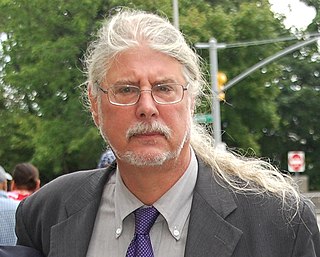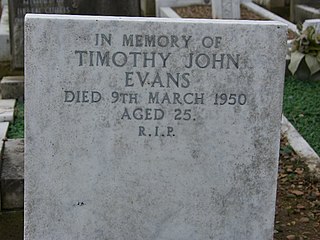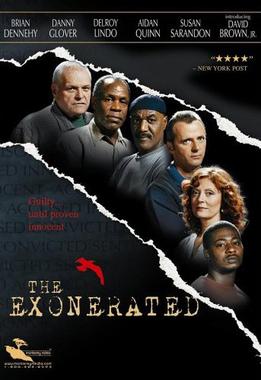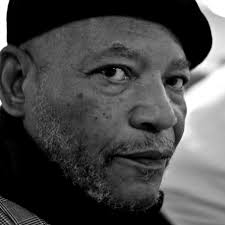Related Research Articles
Innocence Project, Inc. is a 501(c)(3) nonprofit legal organization that is committed to exonerating individuals who have been wrongly convicted, through the use of DNA testing and working to reform the criminal justice system to prevent future injustice. The group cites various studies estimating that in the United States between 1% and 10% of all prisoners are innocent. The Innocence Project was founded in 1992 by Barry Scheck and Peter Neufeld who gained national attention in the mid-1990s as part of the "Dream Team" of lawyers who formed part of the defense in the O. J. Simpson murder case.

Ronald L. Kuby is an American criminal defense and civil rights lawyer, radio talk show host and television commentator. He has also hosted radio programs on WABC Radio in New York City and Air America radio.

A miscarriage of justice occurs when an unfair outcome occurs in a criminal or civil proceeding, such as the conviction and punishment of a person for a crime they did not commit. Miscarriages are also known as wrongful convictions. Innocent people have sometimes ended up in prison for years before their conviction has eventually been overturned. They may be exonerated if new evidence comes to light or it is determined that the police or prosecutor committed some kind of misconduct at the original trial. In some jurisdictions this leads to the payment of compensation.
Kirk Noble Bloodsworth is a former Maryland waterman and the first American sentenced to death to be exonerated post-conviction by DNA testing.

Jesse Joseph Tafero was convicted of murder and executed via electric chair in the U.S. state of Florida for the murders of 39-year-old Florida Highway Patrol officer Phillip A. Black and 39-year-old Ontario Provincial Police Corporal Donald Irwin, a visiting Canadian constable and friend of Black. The officers were killed during a traffic stop where Tafero, his wife Sunny Jacobs and their children were passengers. Tafero's execution was botched; his head burst into flames during the execution by electric chair. After Tafero's execution, the driver, Walter Rhodes, confessed to shooting the officers, but later retracted his testimony.
Exoneration occurs when the conviction for a crime is reversed, either through demonstration of innocence, a flaw in the conviction, or otherwise. Attempts to exonerate convicts are particularly controversial in death penalty cases, especially where new evidence is put forth after the execution has taken place. The transitive verb, "to exonerate" can also mean to informally absolve one from blame.

The Exonerated is a made-for-cable television film that dramatizes the stories of six people, some of whom, were wrongfully convicted of murder and other offenses, placed on death row, and later exonerated and freed after serving varying years in prison. It was based on a successful stage play of the same name written by Erik Jensen and Jessica Blank and first aired on the former CourtTV cable television network on January 27, 2005. It is directed by Bob Balaban and was produced by Radical Media.
This is a list of notable overturned convictions in the United States.

Delbert Lee Tibbs was an American man who was wrongfully convicted of murder and rape in 1974 in Florida and sentenced to death. Later exonerated, Tibbs became a writer and anti-death penalty activist.
The National Registry of Exonerations is a project of the University of Michigan Law School, Michigan State University College of Law and the University of California Irvine Newkirk Center for Science and Society. The Registry was co-founded in 2012 with the Center on Wrongful Convictions at Northwestern University School of Law to provide detailed information about known exonerations in the United States since 1989. As of February 6, 2020, the Registry has 2,551 known exonerations in the United States since 1989. The National Registry does not include more than 1,800 defendants cleared in 15 large-scale police scandals that came to light between 1989 and March 7, 2017, in which officers systematically framed innocent defendants.

The California Innocence Project is a non-profit based at California Western School of Law in San Diego, California, United States, which provides pro bono legal services to individuals who maintain their factual innocence of crime(s) for which they have been convicted. It is an independent chapter of the Innocence Project. Its mission is to exonerate wrongly convicted inmates through the use of DNA and other evidences.
Ricky Jackson, Ronnie Bridgeman and Wiley Bridgeman are African Americans who were wrongfully convicted of murder as young men in Cleveland, Ohio, in 1975 and sentenced to death. Their sentences were commuted to life imprisonment in 1977. They were imprisoned for decades before each of the three was exonerated in late 2014. Jackson and Wiley Bridgeman were released that year.

Louis N. Scarcella is a retired detective from the New York City Police Department (NYPD) who initially came to prominence during the "crack epidemic" of the 1980s and 1990s, earning frequent commendations before many convictions resulting from his investigations were overturned during his retirement. As a member of the Brooklyn North Homicide Squad, he and his longtime partner Stephen Chmil built a reputation for obtaining convictions in difficult cases. Since 2013, Scarcella has received extensive and sustained publicity for multiple allegations of investigative misconduct that resulted in false testimony against crime suspects, meaning that innocent parties could have served long prison terms and guilty individuals could have gone free because of wrongful procedures.

Nicholas James Yarris is an American writer who spent 22 years on death row in Pennsylvania after being wrongfully convicted of murder.
The Ford Heights Four were formerly imprisoned convicts, who were falsely accused and convicted of the double murder of Lawrence Lionberg and Carol Schmal in Ford Heights, Illinois, and later exonerated. Jimerson and Williams were sentenced to death, Adams to 75 years in prison and Rainge to life. Following the murder in 1978, the four spent almost two decades in prison before being released in 1996. This miscarriage of justice was due to false forensic testimony, coercion of a prosecution witness, perjury by another witness who had an incentive to lie, and prosecution and police misconduct. The DNA evidence uncovered in the investigation to clear their names eventually led to the arrest and conviction of the real killers.

Alissa Leanne Bjerkhoel is an American litigation coordinator at the California Innocence Project (CIP), a law school clinic that investigates cases of factual innocence while training law students. Bjerkhoel was born in Truckee, California, and later graduated from California Western School of Law (CWSL) after previously obtaining a B.A. degree She has been an attorney with CIP since 2008. Bjerkhoel has served as counsel for CIP on numerous criminal cases, and achieved the legal exoneration of a number of convicted prisoners. Bjerkhoel serves as CIP's in-house DNA expert and also serves as a panel attorney with the nonprofit law firms Appellate Defenders, Inc. (ADI) and Sixth District Appellate Program (SDAP). She is a member of the American Academy of Forensic Sciences. Bjerkhoel has won a number of awards.
Blind Injustice is an opera based on the stories of six people who were wrongfully convicted of crimes in Ohio, and who eventually had their convictions overturned through the work of the Ohio Innocence Project. The opera was commissioned by the Cincinnati Opera; it was written by librettist David Cote and composer Scott Davenport Richards. The libretto was based in part on the book Blind Injustice by Ohio Innocence Project co-founder Mark Godsey, and on interviews with those whose stories are portrayed. The opera opened at Cincinnati Opera on July 22, 2019.
Kevin Strickland is an African-American man who was wrongfully convicted by an all-white jury in 1979 of killing three people in Kansas City, Missouri. No physical evidence linked him to the scene of the crime and the only alleged witness later recanted her testimony that Strickland was involved. Strickland was given a life sentence. In 2021, he garnered national attention after former prosecutors in his case said that he was very likely innocent and called for his release.
References
- 1 2 "Clifford Williams, Jr. - National Registry of Exonerations". www.law.umich.edu. Retrieved 2021-01-03.
- 1 2 "Anatomy of a wrongful conviction". Jacksonville.com.
- 1 2 Adan, Abukar (28 March 2019). "Men Freed After Serving 42 Years For Jacksonville Murder They 'Probably' Didn't Commit". news.wjct.org. Retrieved 2021-01-03.
- 1 2 "Hubert Nathan Myers & Clifford Williams | Innocence Project of Florida". IPF. Retrieved 2021-01-03.
- 1 2 "He didn't do it: Exoneree Clifford Williams files claim for 43 years of wrongful incarceration". Florida Phoenix. 2020-01-22. Retrieved 2021-01-03.
- 1 2 Pantazi, Zac Anderson and Andrew. "Florida House committee approves $2.15 million for man exonerated after 43 years in prison". Tallahassee Democrat. Retrieved 2021-01-03.
- 1 2 "After Spending 43 Years In Prison, 2 Men Wrongfully Convicted Of Murder Are Finally Free". Essence. 23 October 2020. Retrieved 2021-01-03.
- ↑ Dellatto, Marisa (2019-03-31). "Wrongfully convicted men finally free after 43 years in prison". New York Post. Retrieved 2021-01-03.
- 1 2 "2 relatives spent decades in prison for a crime they didn't commit. Only one is getting compensated". www.cbsnews.com. 31 October 2019. Retrieved 2021-01-03.
- ↑ Peel, Jim Piggott, Tarik Minor, Steve Patrick, Corley (2019-03-29). "Wrongly convicted of murder: 2 men freed after 42 years in prison". WJXT. Retrieved 2021-01-03.
{{cite web}}: CS1 maint: multiple names: authors list (link) - ↑ "Criminal (podcast)", Wikipedia, 2020-10-23, retrieved 2021-01-03